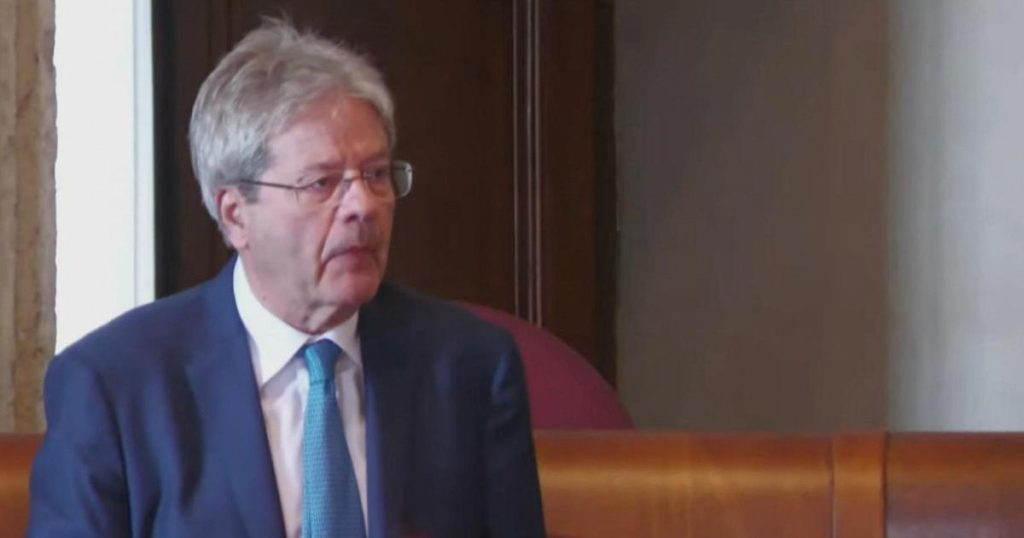Paolo Gentiloni, the European Commissioner for Economic and Monetary Affairs, spoke at an event in Capitoline Hill on Europe Day, reflecting on the current state of Europe. He highlighted that Europe has faced two major crises in the past five years: the COVID crisis and the Russian invasion problem. Despite these challenges, Gentiloni believes that Europe is stronger than before. He pointed out that previous years were even more difficult, including the UK’s exit from the European Union. However, he noted that compared to previous elections, there are fewer movements advocating for countries to leave the EU, showing a shift towards discussions on what kind of Europe people want rather than whether they want it at all.
Gentiloni emphasized that the focus of the current European election campaign is on the type of Europe that people desire, rather than the debate on exiting the EU. He believes that the reduced presence of “Exit” movements suggests a growing acceptance and commitment to the European project. The discussion has shifted towards how to improve and strengthen the EU, indicating a positive development in the continent’s political landscape. Gentiloni’s remarks suggest a sense of unity and a shared vision for the future of Europe, with a growing realization that cooperation and integration are essential for addressing global challenges and ensuring sustainable development for all member states.
The European Commissioner highlighted the resilience of Europe in the face of recent crises, citing the ongoing COVID pandemic and the Russian invasion as significant tests of the continent’s strength. Despite these challenges, Gentiloni remains optimistic about the future of Europe, noting that the continent has overcome past difficulties and emerged stronger. He also pointed out that the absence of major movements advocating for countries to leave the EU indicates a growing recognition of the benefits of European integration and cooperation. This shift in focus from exit debates to discussions on improving the EU suggests a maturing of the political discourse surrounding Europe’s future.
Gentiloni’s remarks at the event on Europe Day offer a positive outlook on the continent’s future, emphasizing the progress made in overcoming past challenges and the growing commitment to European unity and cooperation. His observation that the current election campaign is centered on discussions about the kind of Europe people want reflects a broader shift in attitudes towards the EU, with a greater emphasis on working together to address common challenges. By highlighting the strengths and resilience of Europe in the face of crises, Gentiloni’s comments convey a message of hope and optimism for the future of the European project, underscoring the importance of unity and collaboration in building a stronger and more prosperous continent.
In conclusion, Gentiloni’s assessment of the current state of Europe on Europe Day underscores the continent’s resilience in the face of recent crises and the growing recognition of the importance of European unity and cooperation. Despite challenges such as the COVID pandemic and the Russian invasion, he remains optimistic about Europe’s future, pointing to the reduced presence of movements advocating for countries to leave the EU as a positive sign of the continent’s commitment to integration. As discussions shift towards improving and strengthening the EU, there is a sense of shared vision and common purpose in shaping the future of Europe, emphasizing the need for collaboration and solidarity in addressing global challenges and ensuring a prosperous future for all member states.


